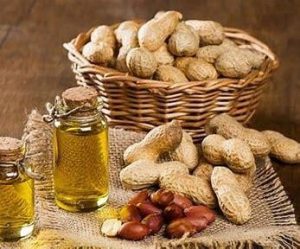9 Medicinal Uses
Traditional and mainstream

According to the encyclopedic study of the Aztecs in 1566 by Friar Bernardino de Sahagún it illustrates that peanut was referred to in Nahuatl dialect as “tlalcacauati”, which translates to “earth cocoa bean.” This term reflects the peanut’s association with the earth and its similarity to cacao. They “pasted” or “buttered” the peanut and used it as a toothache remedy highlighting the importance of peanuts in traditional medicine practice as referred to by Sahagún in findings.

In addition, in the Afro Mexicans community, peanut oil has been used in various diseases. They used it for skin treatments, or as a base for ointments. Studies have indicated that peanuts may also play a role in reducing the probability of cardiovascular diseases. Its consumption is cognate for lowering cholesterol levels and helping prevent gallstones making them a significant addition to modern diets.
In addition to the traditional medicine findings, modern medicine did not fall behind. Three decades ago, researchers identified a hemostatic factor in peanuts, leading to its documentation in scientific literature. Some doctors in Washington, DC, and Copenhagen created an oral administration drug for patients affected by hemophilia. They posited that the factor which causes blood coagulation was a protease inhibitor, responsible for the observed clotting action. They suggested that frequent consumption of peanut flour was the most effective way to obtain this hemostatic factor, a finding that was reported in Drug Trade News on July 23, 1962, highlighting the potential therapeutic benefits of peanuts in managing bleeding disorders.

Finally, to address the nutritional deficiencies in patients affected by anorexia, doctors often recommend peanut butter. Because anorexia nervosa is characterized by an intense fear of weight gain and self-imposed starvation, predominantly affecting women. Peanuts allow individuals to indulge in a controlled manner while facilitating necessary caloric intake for recovery. Peanuts are particularly beneficial due to their high protein content—approximately 26 percent—exceeding that of dairy, eggs, fish, and many meats, making them an effective option for those, especially women, on the path to regaining weight and health after a prolonged struggle with the illness.